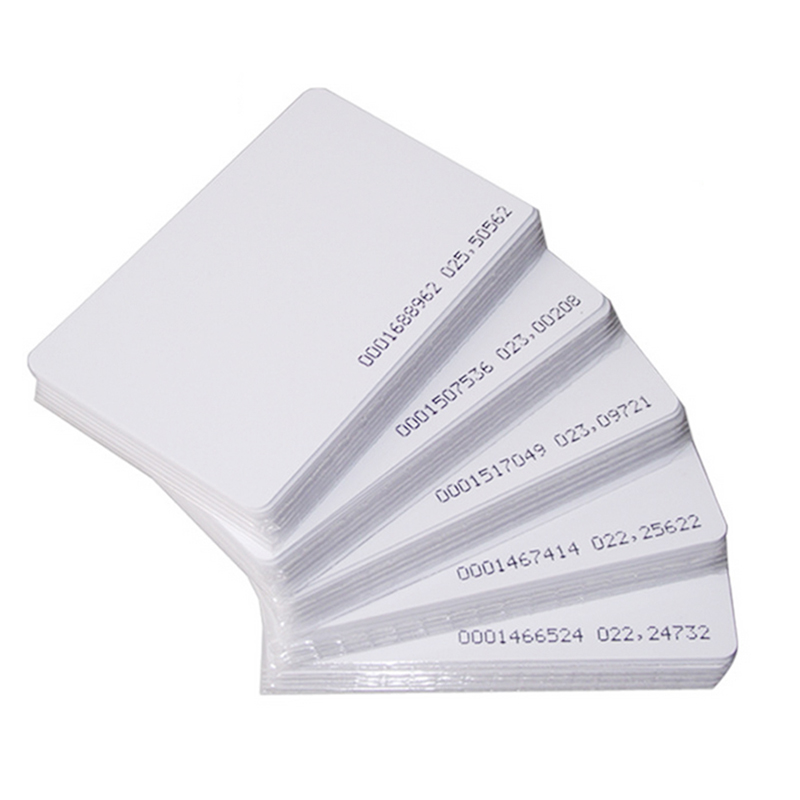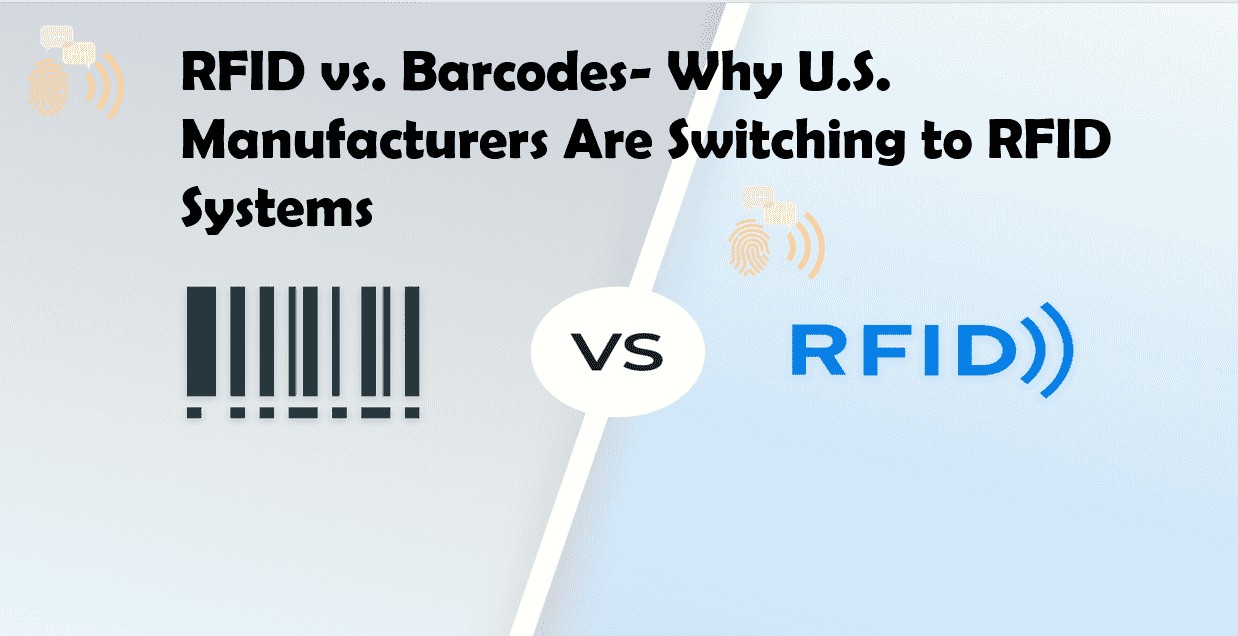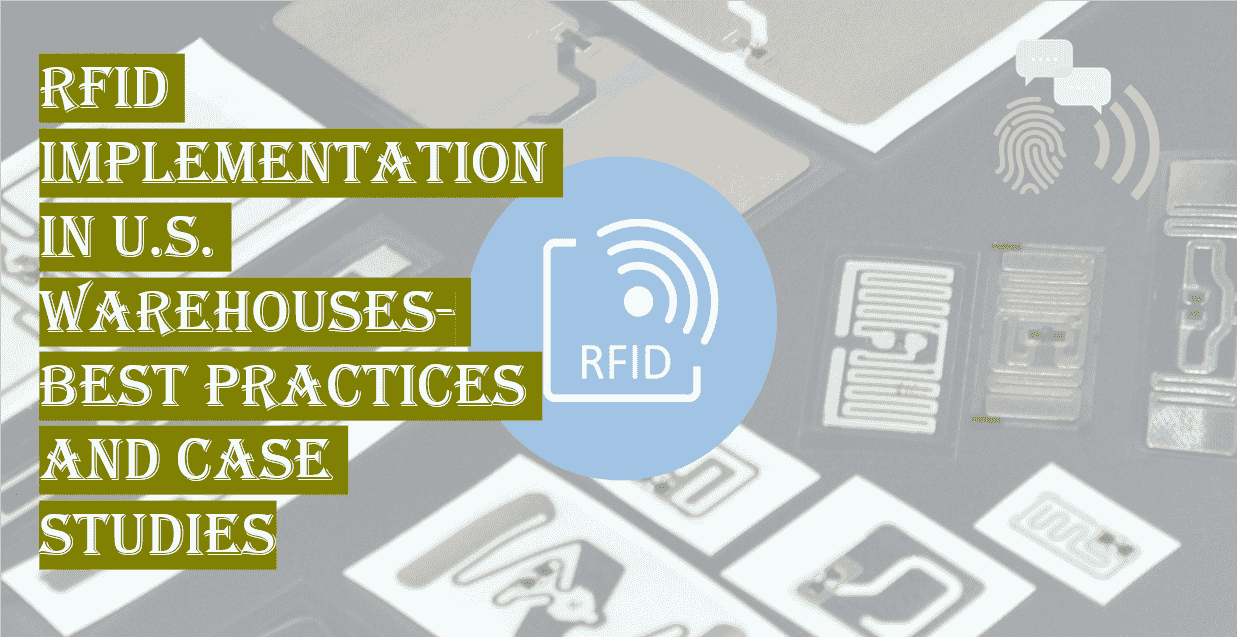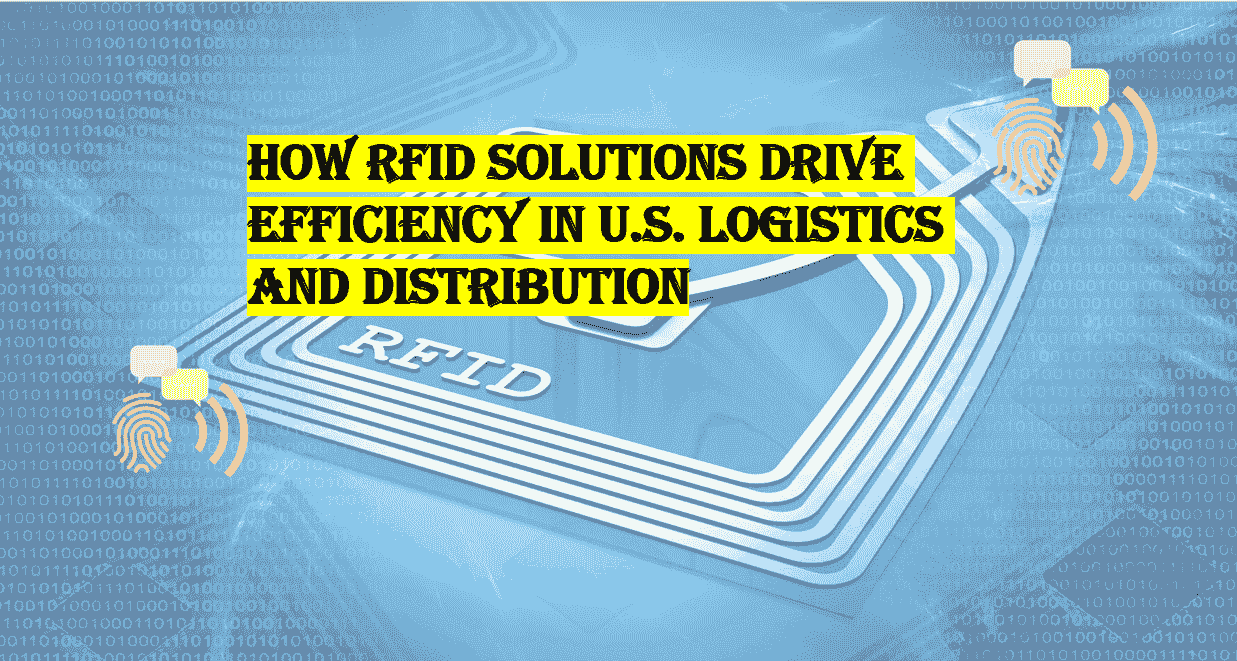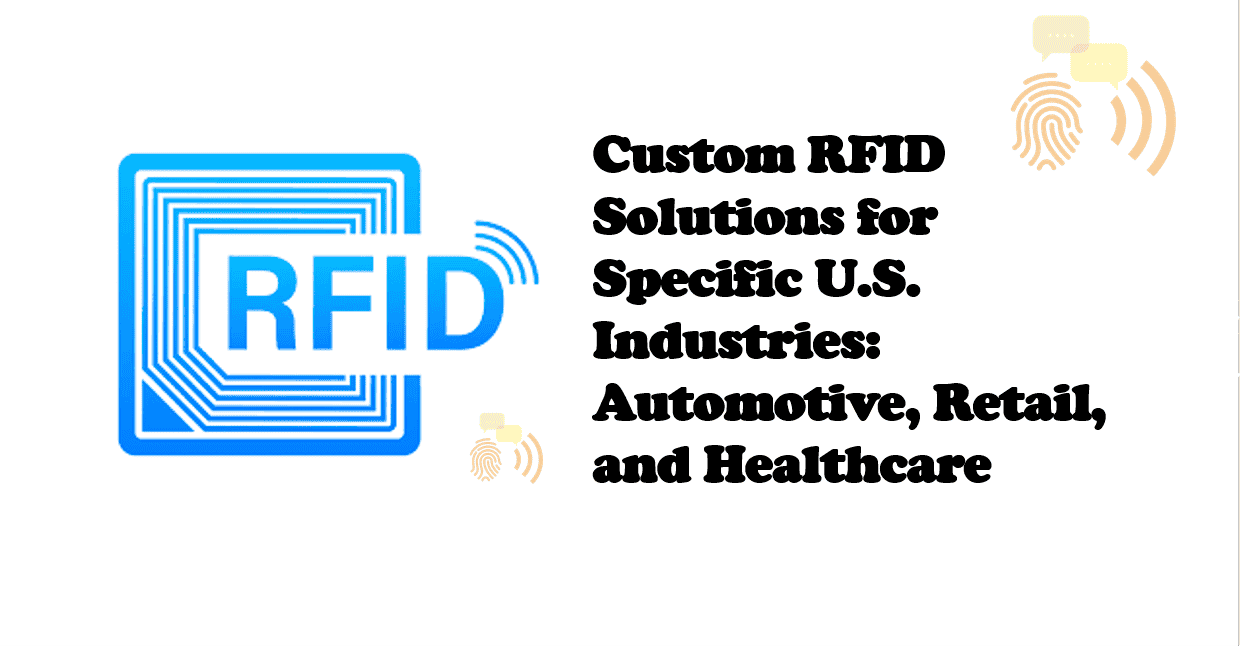Why RFID Technology is the Key to Streamlining Your Business Operations
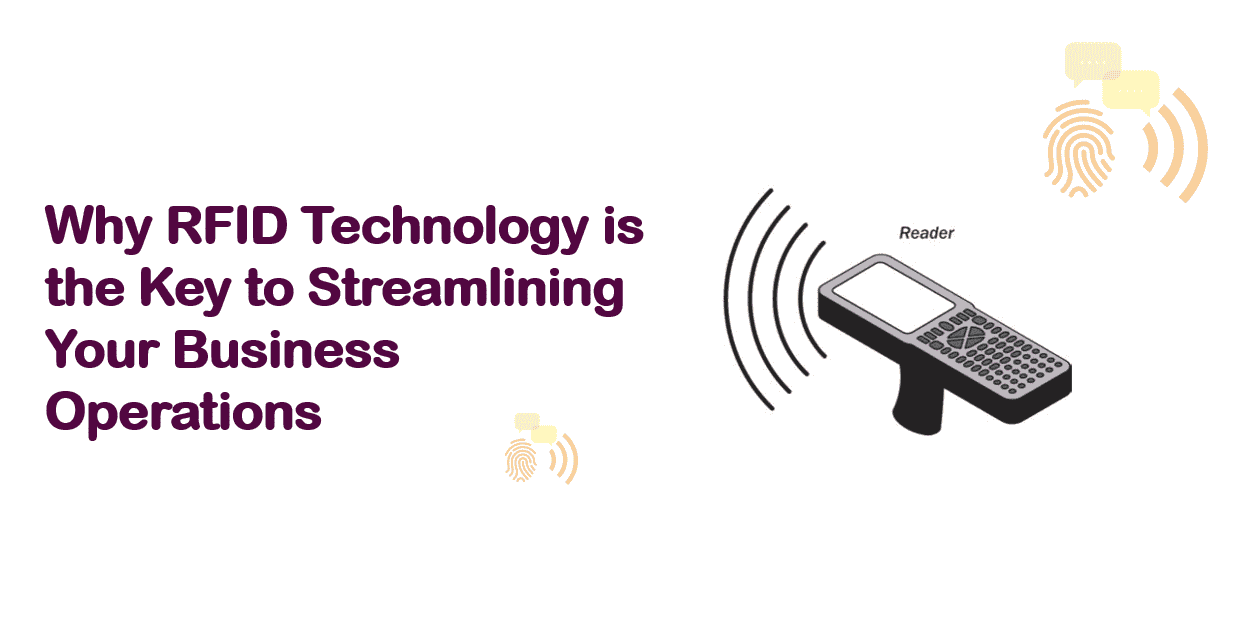
Why RFID Technology is the Key to Streamlining Your Business Operations
In today’s fast-paced business world, companies are continuously searching for ways to optimize their operations and increase efficiency. One of the most transformative technologies to emerge in recent years is Radio Frequency Identification (RFID). Initially popularized in industries like retail and logistics, RFID technology has proven to be a game-changer for a wide variety of businesses. By using radio waves to automatically identify and track tags attached to objects, RFID helps streamline business processes and provides valuable data to enhance decision-making. In this article, we’ll explore how RFID for business operations can help you improve business efficiency with RFID and drive long-term growth.
What is RFID Technology?
RFID (Radio Frequency Identification) uses electromagnetic fields to transfer data between an RFID reader and a tag. The tag contains information about the item to which it is attached, and the reader collects that data from a distance. Unlike traditional barcode scanning, RFID does not require direct line-of-sight and can read multiple tags simultaneously, making it a far more efficient solution for tracking inventory, assets, and personnel.
The Importance of RFID in Streamlining Business Operations
RFID streamlining business operations refers to using RFID technology to simplify, automate, and accelerate various processes within an organization. Whether it’s managing inventory, tracking assets, or monitoring supply chain performance, RFID can eliminate the need for manual data entry and reduce human error. Here’s how:
1. Enhanced Inventory Management
One of the most prominent uses of RFID for business operations is in inventory management. Traditional methods of tracking inventory often rely on barcodes, which require manual scanning and are prone to errors. RFID, on the other hand, offers real-time, automatic data collection. RFID tags can be attached to products or assets, and RFID readers can instantly identify and update inventory data.
For businesses with large inventories or high turnover rates, business efficiency with RFID becomes especially valuable. RFID can help maintain accurate stock levels, reduce instances of stockouts or overstocking, and streamline reordering processes. Moreover, RFID enables businesses to conduct inventory checks in a fraction of the time it would take with manual barcode scanning, freeing up resources for other critical tasks.
2. Improved Asset Tracking
Asset management is another key area where RFID technology significantly improves operational efficiency. Whether it’s monitoring high-value equipment, tracking tools, or managing office assets, RFID can help businesses keep a close eye on their assets’ location and condition. By attaching RFID tags to items, businesses can easily identify where their assets are at any given time.
This RFID streamlining business solution offers several advantages:
- Loss Prevention: RFID systems can alert business owners when an asset is moved without authorization.
- Maintenance Scheduling: By tracking the usage and wear-and-tear of equipment, businesses can schedule maintenance proactively.
- Audit and Compliance: RFID allows for easy tracking of assets for auditing purposes, ensuring businesses are compliant with regulations.
With RFID, companies can minimize the risk of asset misplacement, reduce theft, and optimize asset utilization—all contributing to improved business efficiency with RFID.
3. Faster and More Accurate Order Fulfillment
In industries like retail, e-commerce, and manufacturing, fast and accurate order fulfillment is crucial. RFID technology helps streamline this process by providing real-time visibility into stock levels and order statuses. When a customer places an order, RFID can be used to quickly identify the products in the warehouse and automatically update inventory data. This reduces the chances of human error during order picking and shipping.
Furthermore, RFID enables the automation of replenishment processes. For instance, when stock levels of a particular item run low, RFID can trigger automatic reorder notifications to suppliers, ensuring that the right products are always available at the right time.
4. Enhanced Supply Chain Management
The supply chain is the backbone of many businesses, and optimizing its efficiency is critical. RFID enables businesses to gain better control and visibility of their entire supply chain, from raw materials to finished goods. By tagging goods with RFID labels at every stage of production and transportation, businesses can track the movement of goods in real-time, allowing for better coordination among suppliers, warehouses, and distribution centers.
With RFID, companies can reduce delays, minimize errors, and improve communication between different parts of the supply chain. The ability to track shipments and goods at each stage gives businesses greater insight into supply chain performance, allowing them to identify bottlenecks and optimize operations.
5. Improved Customer Experience
RFID for business operations doesn’t just improve internal processes—it can also enhance the customer experience. For example, in retail settings, RFID can be used to provide faster checkout experiences. Customers can place multiple items on a checkout counter equipped with RFID readers, which automatically scan all items at once, reducing wait times and improving customer satisfaction.
In addition, RFID helps businesses track customer preferences and buying patterns, which can be used for personalized marketing and promotions. This data-driven approach leads to more accurate inventory forecasting and a better alignment between customer demand and product availability.
The Bottom Line: Boosting Efficiency with RFID
From inventory management and asset tracking to order fulfillment and supply chain optimization, RFID technology offers countless ways to streamline business operations. By automating data collection and providing real-time visibility, RFID reduces manual labor, minimizes errors, and enhances decision-making. These benefits ultimately lead to improved business efficiency with RFID, greater profitability, and a more competitive edge in the market.
As the cost of RFID technology continues to decrease and its applications grow, businesses of all sizes and industries are increasingly adopting RFID solutions to boost operational efficiency. Whether you’re a small retailer or a large manufacturer, incorporating RFID streamlining business into your operations can transform the way you do business and drive long-term success.
By leveraging the power of RFID, your company can stay ahead of the curve, improving both internal operations and the customer experience in ways that were once unimaginable. If you haven’t yet explored the potential of RFID for business operations, now is the perfect time to start.
Related Products
To enhance the credibility and depth of the article, here are some relevant statistics and facts you can incorporate into the article to support the points on RFID technology’s benefits in streamlining business operations:
RFID for Business Operations: Key Stats and Facts
-
Market Growth of RFID Technology
The global RFID market size was valued at $12.18 billion in 2020 and is expected to grow at a CAGR of 14.2% from 2021 to 2028, reaching an estimated $34.5 billion by 2028 (Grand View Research). This rapid growth highlights the increasing adoption of RFID technology across various industries. -
Inventory Management Efficiency
A study by Zebra Technologies found that 90% of companies using RFID technology report significant improvements in inventory accuracy. Inventory accuracy increases by up to 99% with RFID, compared to only 63% accuracy using manual processes or barcode scanning. -
Improvement in Order Fulfillment Speed
In retail, RFID has been shown to increase inventory visibility by 30%, which leads to a 50% improvement in order fulfillment speed. This translates to faster processing times and greater customer satisfaction (Retail Systems Research). -
Reduction in Stockouts and Overstocking
A University of Arkansas study revealed that RFID-enabled retailers can reduce stockouts by almost 50% and decrease overstocking by up to 30%. This can lead to significant cost savings and more efficient supply chain operations. -
Cost Savings with RFID
A report by IDTechEx estimates that businesses can save up to 5% of annual revenues by implementing RFID systems due to improvements in inventory control, asset management, and loss prevention. -
Asset Tracking and Loss Prevention
In asset management, RFID systems can reduce the time required for physical audits by up to 95%, according to Deloitte. Additionally, RFID can help reduce asset loss by as much as 20% in industries such as healthcare and manufacturing, where valuable equipment is prone to misplacement or theft. -
Supply Chain Visibility
Research from GS1 US found that 75% of businesses using RFID report a 10-30% improvement in their supply chain efficiency. Real-time tracking of goods throughout the supply chain helps companies respond more quickly to potential delays, bottlenecks, or issues. -
Customer Satisfaction
According to Aberdeen Group, companies that implemented RFID saw a 38% improvement in customer satisfaction. RFID improves the accuracy of orders, reduces errors, and speeds up the delivery process, all contributing to a better overall customer experience. -
Retail Adoption
As of 2021, approximately 85% of large retailers in the U.S. have adopted RFID technology for inventory management, according to Gartner. RFID adoption has become nearly a standard in sectors such as retail, logistics, and manufacturing, making it a must-have technology for businesses aiming to stay competitive. -
Return on Investment (ROI)
Businesses investing in RFID technology typically see a return on investment (ROI) of 15-30% within the first year, driven by improved inventory accuracy, reduced labor costs, and better stock management (Avery Dennison).
Incorporating these stats and facts into your article will make it more data-driven and credible, showcasing the real-world impact of RFID technology in streamlining business operations.

